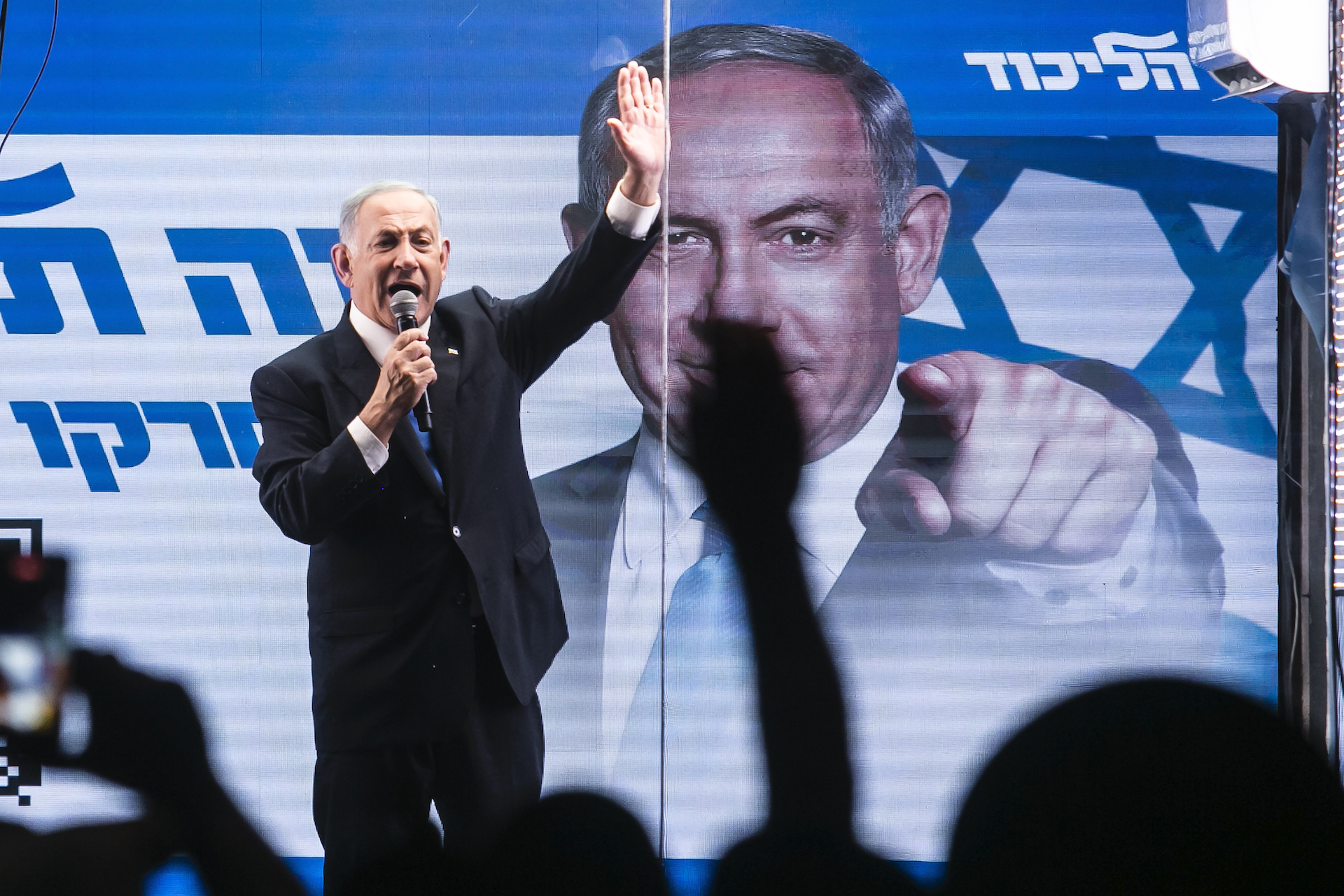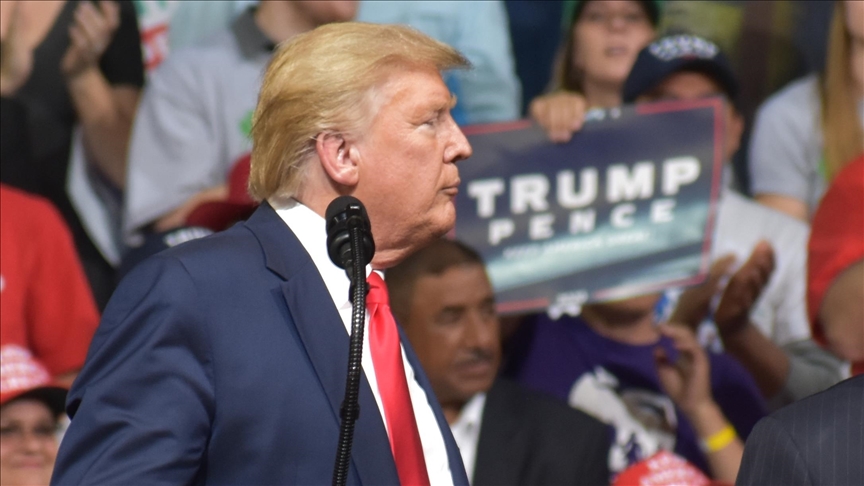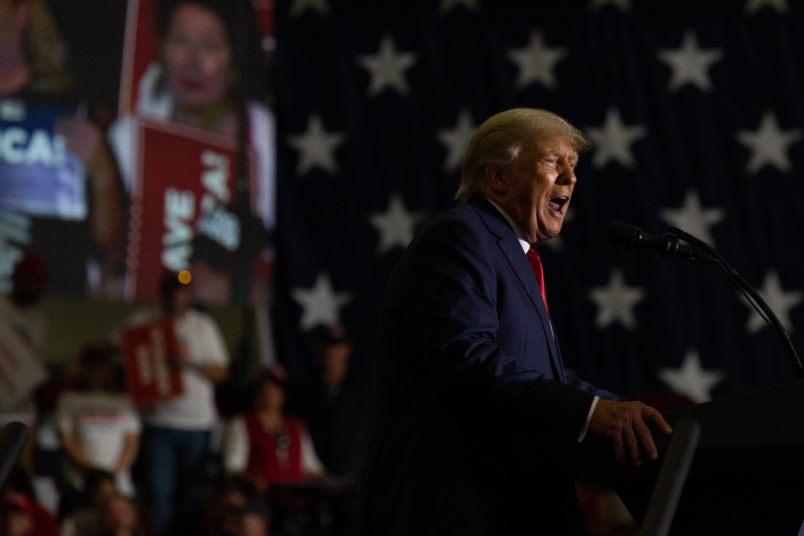December 06, 2022

Jamal Khashoggi, pictured in 2014, about four years before his murder and dismemberment
Washington (AFP) - A US judge dismissed Tuesday a lawsuit against Saudi Arabia's Crown Prince Mohammed bin Salman for his alleged role in the 2018 murder of dissident journalist Jamal Khashoggi.
Washington federal judge John Bates accepted a US government's stance that Prince Mohammed, who was designated prime minister of Saudi Arabia in September, enjoys immunity in US courts as a foreign head of state.
Bates said the civil suit filed by Khashoggi's widow Hatice Cengiz and his activist group DAWN made a "strong" and "meritorious" argument that Prince Mohammed was behind the murder.
But he ruled that he had no power to reject the US government's official stance, submitted in a formal statement to the court on November 17, that the prince had immunity as a foreign leader.
Even if the prince was named prime minister just weeks ago, the US government's executive branch "remains responsible for foreign affairs, including with Saudi Arabia, and a contrary decision on bin Salman’s immunity by this Court would unduly interfere with those responsibilities," Bates said.
He said the "credible" allegations of the murder, the timing of prince's being named prime minister, and timing of the US government's submission, left him with "uneasiness."
But Bates said he had no other choice in the case.
US intelligence blamed prince
Prince Mohammed has been the kingdom's de facto ruler for several years under his father King Salman.
One of the prince's most vocal critics, Khashoggi was a journalist and activist based in the United States when he traveled to Turkey with his fiancee to obtain documents for their marriage from the Saudi consulate in Istanbul.
After he entered the consulate Khashoggi was seized and murdered by a team of agents of the Saudi regime, his body dismembered and disposed of.
Activists seeking to hold the crown prince accountable for the Khashoggi murder voiced dismay.
"Today is a dark day for victims of transnational repression," said Khalid Aljabri, a US-based doctor and son of a former Saudi intelligence official.
US President Joe Biden "has put dissidents at greater risk while confirming to dictators that his human rights policy is nothing but hot air."
A Saudi court in 2020 jailed eight people for between seven and 20 years over the killing.
Last year, Biden declassified an intelligence report that found Prince Mohammed had approved the operation against Khashoggi, an assertion Saudi authorities deny.
The murder deeply strained ties between Washington and Riyadh.
But driven by the needs of Middle East politics, particularly the threat from Iran, and Saudi Arabia's power over oil markets, Biden traveled to the country in July in a move seen as partially aiming to put the murder case behind.
Nevertheless, while there Biden made mention of it in his talks with the crown prince, calling the murder "outrageous."
The court followed the Biden administration’s guidance that Crown Prince Mohammed bin Salman has immunity as a head of government in a case over the death of Jamal Khashoggi.

By Edward Wong
Dec. 6, 2022,
WASHINGTON — A U.S. federal court said in a filing on Tuesday that it was dismissing a lawsuit against the crown prince of Saudi Arabia over the murder of a Saudi columnist who lived in Virginia, after the State Department’s determination that the prince has immunity as a head of state or government.
The lawsuit filed on behalf of Hatice Cengiz, the fiancée of the columnist, Jamal Khashoggi, named Crown Prince Mohammed bin Salman as the most prominent defendant. Mr. Khashoggi was killed by Saudi agents while visiting Saudi Arabia’s consulate in Istanbul in 2018 to get documents for his upcoming wedding.
This September, Prince Mohammed’s father, King Salman, made the prince the prime minister of Saudi Arabia. The move formalized his role as ruler of the kingdom, though the king remains the head of state.
Some U.S. officials and analysts said the king appeared to make the decision to ensure that the prince had immunity in the case. King Salman made the announcement six days before an October deadline set by the court for the U.S. government to advise whether Prince Mohammed had immunity. Soon after he received his new title, the prince told the court he had immunity based on legal precedent.
The State Department asked the court for an extension to make a legal determination, and then it filed a statement with the Justice Department on Nov. 17 that said Prince Mohammed should be “immune while in office.”
The letter said the State Department was not taking a position on the suit itself and repeated “its unequivocal condemnation of the heinous murder” of Mr. Khashoggi. Legal scholars said at the time that the determination was consistent with precedent.
In its 25-page filing on Tuesday, the court said: “Despite the court’s uneasiness, then, with both the circumstances of bin Salman’s appointment and the credible allegations of his involvement in Khashoggi’s murder, the United States has informed the court that he is immune, and bin Salman is therefore ‘entitled to head of state immunity … while he remains in office.’”
“Accordingly,” the court added, “the claims against bin Salman will be dismissed based on head-of-state immunity.”
The court also dismissed the cases against Saud al-Qahtani and Ahmed al-Assiri, senior Saudi officials at the time of the killing who were named as defendants in the lawsuit, saying the plaintiffs had not adequately established that the court should have jurisdiction over the matter.
Sarah Leah Whitson, the executive director of Democracy for the Arab World Now, an advocacy group that filed the lawsuit on behalf of Ms. Cengiz, wrote on Twitter that the court’s decision was “sad news for accountability.” She said that the group was consulting with lawyers on the next steps and that “our struggle for justice continues.”
Mr. Khashoggi, a Saudi dissident who wrote columns in The Washington Post criticizing the prince and the kingdom’s government, was strangled by Saudi agents and then dismembered. During the 2020 presidential campaign, President Biden vowed to make Saudi Arabia a “pariah” for the killing and other human rights abuses. As one of his first foreign policy actions in office, Mr. Biden authorized the release of a U.S. intelligence report that said Prince Mohammed had approved the killing.
Mr. Biden kept his distance from the kingdom and criticized its human rights record, but this summer he bowed to suggestions from top national security aides that he should try to repair relations with Prince Mohammed. He reluctantly visited the kingdom in July and exchanged a fist bump with the prince, which drew widespread condemnation from senior Democratic lawmakers and human rights advocates.
In October, the prince led OPEC Plus, a cartel of oil-producing nations, in announcing a steep cut in production, which infuriated Mr. Biden and created a new rupture in U.S.-Saudi relations. Mr. Biden accused the prince of siding with Russia, which relies on high oil prices to support its spending during its war on Ukraine.
Top Biden aides thought they had reached a secret agreement with Saudi officials in May to increase oil production through the end of this year, though officials in Riyadh have denied making such promises.
Saudi Crown Prince Is Held Responsible for Khashoggi Killing in U.S. Report
Feb. 26, 2021
Edward Wong is a diplomatic correspondent who has reported for The Times for more than 22 years, based in New York, Baghdad, Beijing and Washington. He received a Livingston Award and was on a team of Pulitzer Prize finalists for Iraq War coverage. He has been a Nieman Fellow at Harvard and a visiting professor of journalism at Princeton and U.C. Berkeley. @ewong














